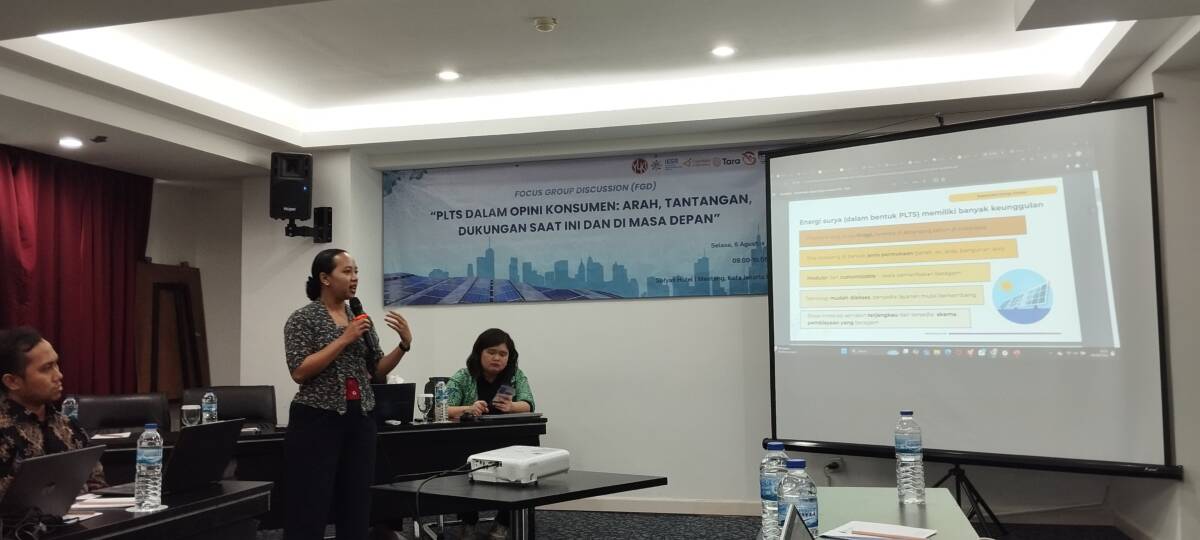Jakarta, 6 August 2024 – Sustainable consumption is the use of products and services that meet basic needs and bring a better quality of life while minimizing the use of natural resources, toxic materials, gas emissions and pollutants in the life cycle of these products and services. In the context of energy consumption, the use of renewable energy can be a breakthrough for circular sustainable consumption.
Tulus Abadi, Chairman of the Executive Board of the Indonesian Consumers Foundation (YLKI) explained that from a consumer perspective, the use of renewable energy is very important. YLKI states that the use of renewable energy is a form of consumer responsibility to realize sustainable consumption patterns. She made this statement at a Focused Group Discussion (FGD) forum on Solar PV in Consumer Opinion: Direction, Challenges, Current and Future Support conducted by YLKI in collaboration with the Institute for Essential Services Reform (IESR) and Koaksi Indonesia.
“One of the renewable energy sources available and easily accessible to consumers is solar energy. YLKI encourages all parties to create a conducive policy and regulatory climate, so that people can easily access and install solar energy to meet their energy needs,” he said.
Solar energy itself is a flexible and democratic energy, because the source is available in almost all parts of Indonesia and can be accessed starting from a small capacity. IESR noted that Indonesia’s technical potential for solar energy reaches 3,000-20,000 GWp.
Marlistya Citraningrum, IESR’s Sustainable Energy Access Program Manager, expressed the need to find innovative financing schemes for community-based solar energy utilization ranging from village funds, self-help fees, and corporate social responsibility (CSR) programs.
“From various examples of solar energy development in Indonesia, there are four important notes to ensure its impact is sustainable, namely (1) oriented to users and their impacts, (2) identification of systems that are appropriate to the local context, (3) continuous assistance for communities and communities, and (4) professional management,” Citra said.
Data on the development of rooftop solar PV customers also shows significant growth. From 2018-2024, the number of rooftop solar PV customers increased 15 times, from 609 to 9,324 customers. The capacity also increased from 2 MWp in 2018 to 197 MWp in 2024, or 98 times.

